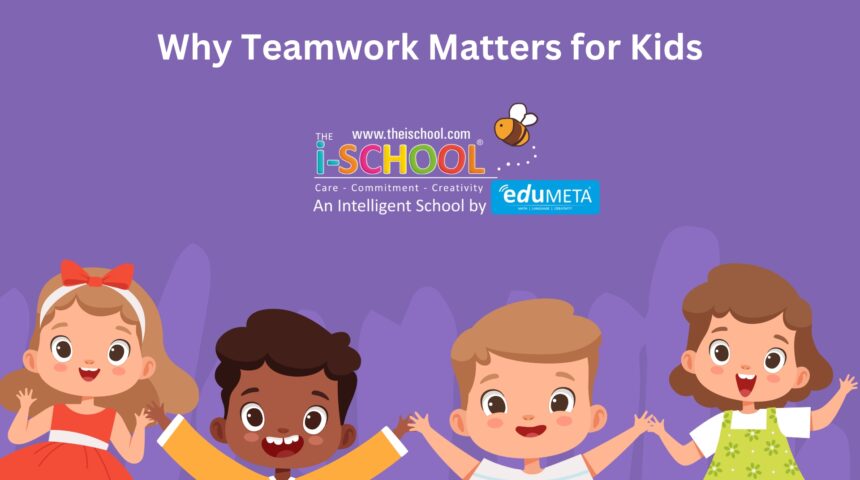Why Teamwork Matters for Kids

In today’s interconnected world, teamwork is a crucial skill that children need to develop from a young age. Whether on the playground, in the classroom, or later in life in the workplace, the ability to work well with others is essential for success. Teaching kids the value of teamwork not only helps them thrive in group settings but also fosters important life skills that will benefit them throughout their lives. Here’s why teamwork matters for kids and how it contributes to their overall development.
1. Builds Social Skills
Teamwork naturally involves interaction with others, which helps children develop vital social skills. When kids work together, they learn how to communicate effectively, listen to others, and express their own ideas. These interactions teach them the importance of empathy, respect, and understanding, which are key components of strong social relationships.
2. Enhances Problem-Solving Abilities
Working in a team often presents challenges that require collective problem-solving. When children collaborate to solve a problem, they learn how to think critically and creatively. They also realize that there’s often more than one way to approach a challenge and that other people’s perspectives can lead to innovative solutions. This experience helps them become more flexible thinkers and better problem-solvers.
3. Encourages Responsibility and Accountability
In a team setting, each member has a role to play. Children learn to take responsibility for their tasks and understand that their contributions affect the entire group. This sense of responsibility helps them develop accountability, as they learn that the success of the team depends on everyone doing their part. It also teaches them that their actions have consequences, both positive and negative.
4. Boosts Confidence and Self-Esteem
When children work as part of a team and see their efforts contribute to a successful outcome, it boosts their confidence and self-esteem. Teamwork allows kids to showcase their strengths and talents, which can be incredibly empowering. Additionally, receiving encouragement and support from teammates helps build their self-worth and reinforces the idea that they have valuable contributions to make.
5. Teaches Cooperation and Compromise
Teamwork requires children to cooperate and sometimes compromise to achieve a common goal. Through these experiences, kids learn that they can’t always have their way and that working together often means finding a middle ground. This ability to compromise is an essential life skill that helps children navigate relationships and conflicts throughout their lives.
6. Promotes a Sense of Belonging
Being part of a team gives children a sense of belonging and connection. When kids work together towards a shared goal, they develop bonds with their peers that can lead to lasting friendships. This sense of belonging is crucial for a child’s emotional well-being and helps them feel valued and accepted within a group.
7. Prepares for Future Success
In almost every aspect of life, teamwork plays a role. Whether in school projects, sports, or eventually in their careers, children who learn to work well with others are better prepared for the future. Teamwork teaches essential skills like collaboration, leadership, and conflict resolution, all of which are highly valued in the workplace and beyond.
8. Fosters a Growth Mindset
When children work in teams, they experience both successes and failures. This exposure helps them develop a growth mindset, where they see challenges as opportunities to learn and improve. They learn that making mistakes is part of the learning process and that with effort and perseverance, they can overcome obstacles and achieve their goals.
Conclusion
Teamwork is much more than just working together; it’s about learning to collaborate, communicate, and support each other in achieving a common goal. By teaching kids the importance of teamwork, we equip them with the social, emotional, and cognitive skills they need to succeed in life. Whether on the playground, in the classroom, or in their future careers, teamwork will always be a valuable asset that helps them thrive in a world where collaboration is key.
